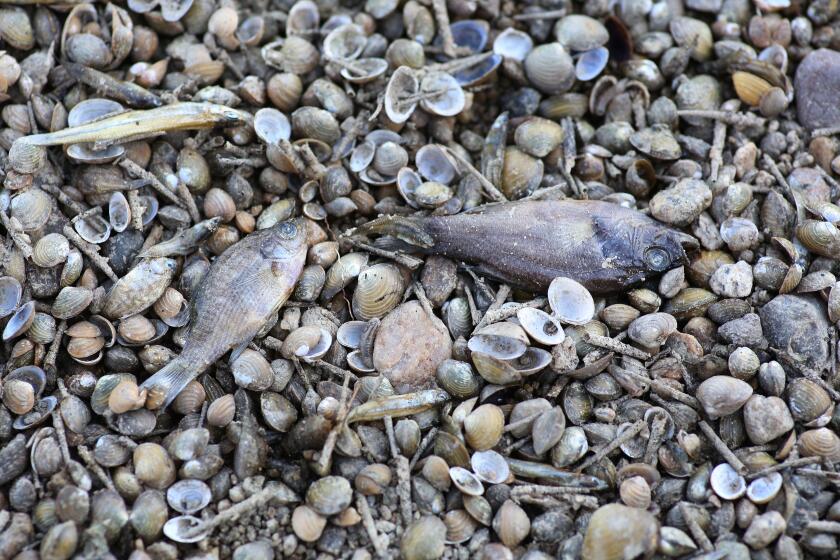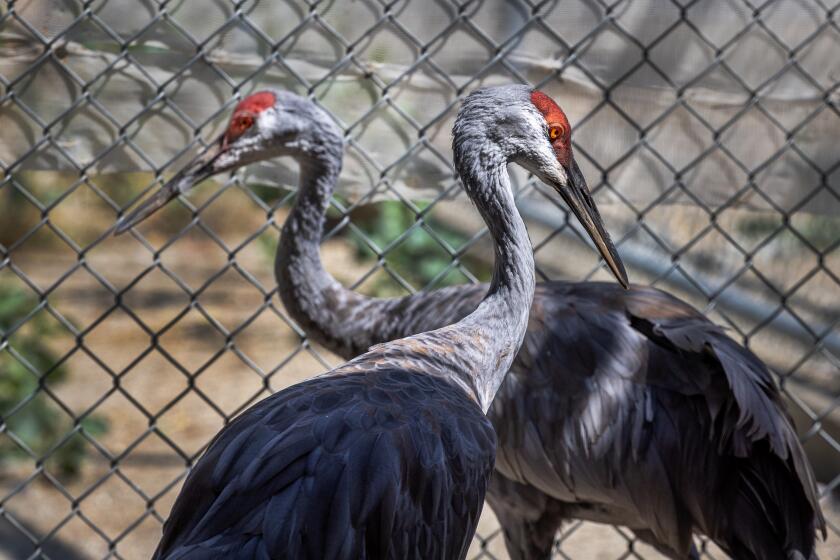Great Whites Get Protection
Great white sharks, one of the world’s most feared animals, will get protection from international trade after nations at a global summit in Thailand voted Thursday to treat them as an endangered species.
The delegates also added or strengthened restrictions on the export and import of about 20 other groups of plants and animals, including a rare dolphin, a giant reef fish popular in Asian restaurants and trees harvested in the rain forests of Indonesia and Malaysia.
Great whites are considered to be among the rarest sharks because they have a low reproductive rate. Their teeth and jaws are prized collectibles that are traded worldwide, both legally and illegally, and their fins and meat are popular in some countries.
Trade of white sharks is already prohibited in the United States, South Africa, Australia, Namibia and Malta, but with Thursday’s vote, restrictions will be enforceable in 166 nations that participate in CITES, the Convention on International Trade in Endangered Species of Wild Fauna and Flora.
A proposal to ban all trade was withdrawn, and the delegates voted to require exporting countries to issue permits, certify that a specimen was legally obtained and ensure that trade would not be detrimental to the species’ survival.
Many nations, led by Japan, opposed the move, saying that international laws already regulated fishing and there was little scientific evidence that oceanic species such as sharks were endangered. The majority, however, including the U.S. and the European Union, decided there was enough concern about the shark’s fate to restrict trade.
Environmental groups welcomed the decision as a first step but said international protection from overfishing, which is beyond the scope of CITES, also was necessary.
“Despite their fierce reputation, great white sharks are naturally rare and vulnerable to overexploitation,” said Ginette Hemley, a vice president at the World Wildlife Fund.
All international trade in the Irrawaddy dolphin, an extremely rare species that lives in rivers in Southeast Asia and shallow, tropical ocean waters, was prohibited. The dolphins are exported within Asia for aquarium displays and shows.
From leopards and parrots to orchids and cactuses, about 5,000 animal species and 28,000 plants have been protected under CITES since it was enacted 30 years ago.
Protection of elephants has always been the most divisive issue for CITES, and this session was no exception. The only surprise came when a proposal by the southern African nation of Namibia to export ivory carvings, known as ekipas, as souvenirs was granted. The approval came after Namibia testified that no elephants would be killed for the trade because all the ivory would come from animals that die of natural causes.
The delegates also adopted a plan to crack down on domestic ivory markets within Africa, which account for the killing of up to 12,000 elephants annually.
Exports of caviar will be reduced after Iran, Russia and three other Caspian Sea nations agreed this week to smaller quotas and a crackdown on illegal markets. Volumes of caviar from beluga, the most prized and endangered sturgeon, will be cut in half.
Several other proposals were approved, including one restricting trade in the reef-dwelling humphead wrasse, a fish that is harvested live and sold to luxury restaurants, mostly in Hong Kong, China and Singapore.
The delegates also voted to regulate exports of ramin, a Southeast Asian tropical hardwood tree that has been severely depleted, and agarwood, another regional tree that is harvested for its oils. Indonesia, the biggest exporter of both, wanted protection tightened to help stop illegal logging there.
More to Read
Sign up for Essential California
The most important California stories and recommendations in your inbox every morning.
You may occasionally receive promotional content from the Los Angeles Times.










